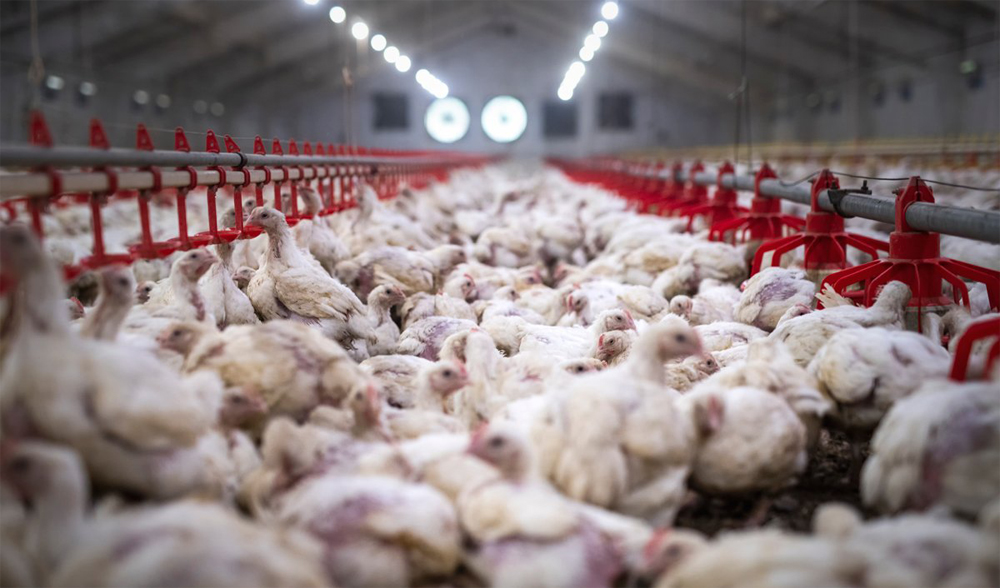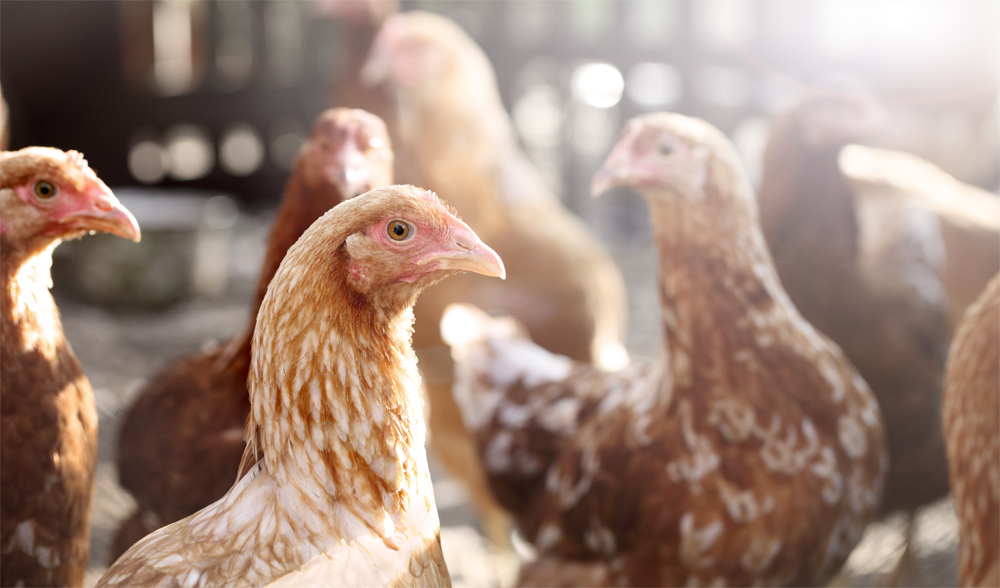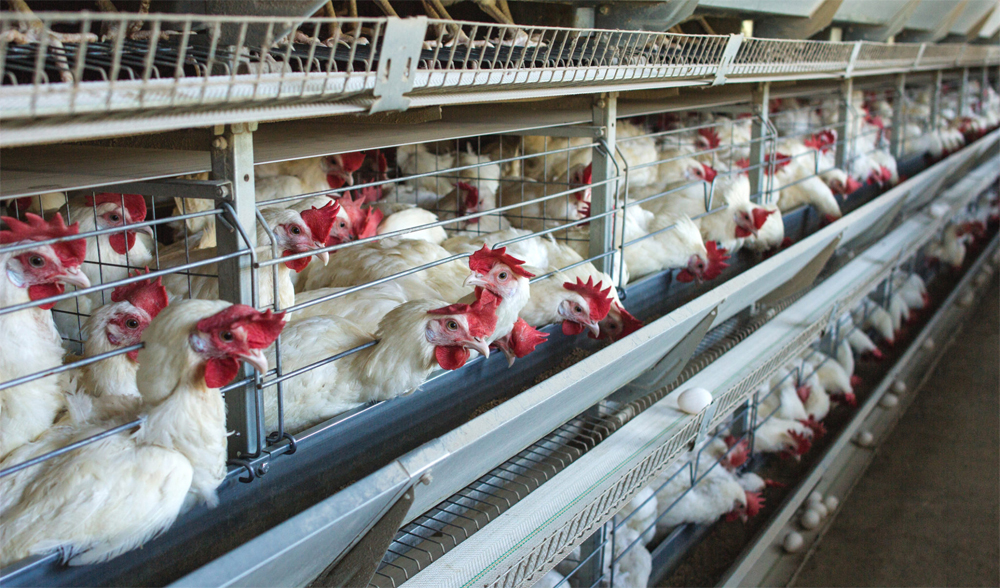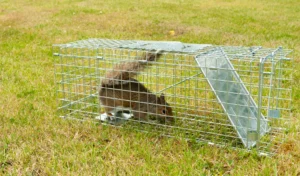Summer pest control is always easier said than done, especially for mosquitoes. They can be everywhere. Living in an area abundant with mosquitoes exposes one to the sheer annoyance they bring. Personally, I consider mosquitoes to be the most vexing insects. Consequently, I hold the belief that robust bug repellents and mosquito netting rank among the most remarkable inventions ever created. These innovations have proven invaluable in mitigating the impact of mosquitoes, providing effective means to deter their presence and protect ourselves from their bothersome bites.
Mosquitoes have the potential to disrupt a serene evening spent on the patio or porch. Fortunately, we can seek refuge indoors when mosquito activity intensifies. However, not all creatures have this luxury. If you reside in an area where mosquitoes thrive, it is understandable to express concern for the well-being of your backyard chickens.
While chickens can contribute to reducing the mosquito population, they remain susceptible to mosquito bites themselves. In my experience, although chickens do not seem to attract mosquitoes as humans do, if chickens and mosquitoes coexist in the same vicinity, the chickens will inevitably be bitten by mosquitoes.

Can Chickens Get Bitten by Mosquitoes?
Indeed, mosquitoes frequently bite chickens, posing a risk of transmitting diseases such as chicken malaria, West Nile virus, and fowl pox. While mosquito bites and the associated diseases rarely result in chicken fatalities, they can cause significant discomfort within your flock. It is essential to take action if you observe signs of sickness or irritation among your chickens. Treating the bites and implementing preventive pest control solutions becomes crucial in safeguarding their health and well-being.
Treatment of Mosquito Bites on Chickens
Chickens possess a protective layer of feathers that typically makes it difficult for mosquitoes to penetrate. However, despite this natural defense, mosquitoes can still bother chickens and inflict bites, particularly targeting the exposed areas such as their combs and wattles. These unprotected areas serve as prime targets for mosquito bites, causing discomfort and potential irritation to the chickens.
Recover by Themselves
Generally, having mosquitoes in the chicken coop should not cause permanent harm to your flock. Mosquito bites are typically bothersome to chickens but will naturally resolve on their own. Furthermore, chickens benefit from their thick feather coverage, which serves as a natural defense against mosquitoes, providing them with a certain level of protection.
In most cases, no action is required for chickens that have been bitten by mosquitoes. If you want your chicken coop pest control effective, then focusing on mosquito control is the most effective approach.
Treatment of Diseases Caused by Mosquitoes
If your chickens exhibit symptoms beyond minor irritation and you are experiencing a severe mosquito problem, it is possible that they might have contracted a disease transmitted by mosquitoes.
Handle your chickens in the same manner as you would with any sick chicken: ensure they are well-hydrated and provide a comfortable environment, giving the illness time to pass. If their condition does not improve and you value the well-being of your chickens, consider consulting a veterinarian for testing and appropriate treatment.
There is no need to be concerned about chickens spreading diseases among themselves. Most diseases transmitted by mosquitoes are specific to mosquitoes and cannot be directly transmitted from an infected chicken to other chickens. Therefore, an infected chicken will not be contagious to the rest of the flock.

Protecting Chickens from Mosquitoes
Although chickens themselves may not attract mosquitoes, these insects can still cause irritation to your flock. Here are some tips to eliminate mosquitoes from your chicken coop:
Eliminate Standing Water
To effectively address a mosquito problem, it is crucial to target the source, which is typically standing water. And your chicken coop is your primary location for your summer pest control. Here are common areas where water may accumulate:
- Gutters: It’s important to be aware that your gutters can collect standing water unnoticed. Debris like leaves can obstruct the gutters or absorb water, providing an ideal breeding ground for mosquito larvae.
- Pots, buckets, and other trash: If you have various clutter or unused containers scattered around, it’s highly likely that some of them are holding stagnant water. For instance, an old wheelbarrow filled with rainwater can serve as a breeding site for mosquitoes. To address this, consider disposing of such items, covering them with a waterproof tarp, or relocating them indoors, such as inside a barn or garage.
- Chicken waters: Your mosquito issue may stem from your chicken water containers. While these containers need to hold water for your chickens to drink, it’s worth exploring alternative types of chicken waterers that make it harder for mosquitoes to access the water. If alternatives are not feasible, ensure that you change the water and clean the containers at least once every two days. Since mosquito larvae take eight to ten days to hatch, more frequent water changes make it challenging for the larvae to survive.
- Ponds: Small and shallow ponds can contribute to a higher mosquito population. To mitigate this, consider introducing mosquito larvae-eating fish into the pond and incorporating plants such as water lilies that repel mosquitoes.
- Puddles and swamps: I understand the challenge of persistent puddles. If you have an abundance of puddles or swamps, particularly near or inside your chicken coop, it is essential to address the issue. Consider draining the water or utilizing soil or gravel to absorb the excess moisture and prevent the formation of puddles.

Try to Attract Mosquito Predators
Contrary to common belief and my childhood belief, mosquitoes do serve a purpose as prey for many animals. As another pest control method, when dealing with mosquito issues, it can be beneficial to leverage their role as a food source for other creatures.
By creating a habitat that attracts mosquito predators, you can effectively reduce the mosquito population on your land. These natural predators will take advantage of the available food source, which is the mosquitoes, leading to a significant decrease in their numbers.
I have curated a list of highly effective mosquito predators to attract to your property:
- Bats: A single bat can consume as many as 1000 mosquitoes in a single night. You can attract bats by installing a bat house near your chicken coop or on a tree.
- Birds: Birds are excellent mosquito predators as they consume significant quantities of these pests. To attract more birds to your area, set up birdhouses, birdbaths, and bird feeders. These provisions will entice birds to stay and feast on the mosquitoes in your vicinity.
- Fish: While it may not be practical to create a mosquito-attracting pond solely for fish, if you already have a pond, it’s a great opportunity to introduce mosquito-eating fish. These fish prey on mosquito larvae, helping to naturally control the mosquito population in your area.
- Frogs and toads: Frogs and toads are naturally attracted to water, so if you have a pond, you likely have these amphibians present, helping to control the mosquito population by feeding on them.
- Dragonflies: Dragonflies are attracted to water and can be effective predators of mosquitoes. By maintaining varied vegetation around your property, you can create an environment that attracts dragonflies, which will help in controlling the mosquito population by preying on them.
Choose Mosquito Killers from Safe-Killer
In addition to the above methods, the use of the right killers is also effective to kill and control mosquitoes and other pests in your chicken coop. You can visit our Mosquito Killer page to learn about our mosquito killers we offer for your mosquito control. Our products include Bottled Hot Mist for spraying into your chicken coop area and Poultry Pest-killing Water Emulsion for spraying both into the area and directly onto your chickens. Not only can these products be used against mosquitoes, they are also the right choice for killing flies, fleas, chicken lice, acarids, ticks, moths and other pests.
Our products are formulated with effectiveness, ease of use and user safety in mind. Only with simple operations, they will be the most effective and easy option for your chicken coop mosquito control. Welcome to visit Safe-killer.com or Contact Us today to learn more.



